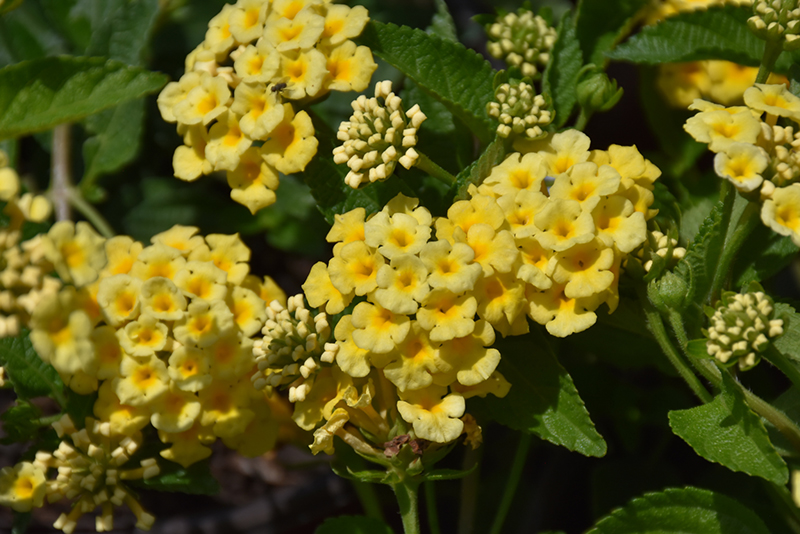Know Before You Go!
Get notified before our plants arrive in stores near you.
Plant Care Library

Chapel Hill Yellow Lantana flowers
Chapel Hill Yellow Lantana flowers
(Photo courtesy of NetPS Plant Finder)
Height: 18 inches
Spacing: 24 inches
Sunlight:
![]()
Hardiness Zone: (annual)
Description:
A beautiful bright and cheery, cold hardy selection; spreading habit lends itself well to garden beds, borders and groundcover; features sunshine yellow flower clusters sitting on top of fragrant dark green foliage, excellent for patio containers
Ornamental Features
Chapel Hill Yellow Lantana features showy cymes of yellow flowers at the ends of the branches from early summer to mid fall. Its fragrant pointy leaves remain dark green in color throughout the year.
Landscape Attributes
Chapel Hill Yellow Lantana is a multi-stemmed annual with a ground-hugging habit of growth. Its medium texture blends into the garden, but can always be balanced by a couple of finer or coarser plants for an effective composition.
This is a relatively low maintenance plant, and should not require much pruning, except when necessary, such as to remove dieback. It is a good choice for attracting bees, butterflies and hummingbirds to your yard, but is not particularly attractive to deer who tend to leave it alone in favor of tastier treats. It has no significant negative characteristics.
Chapel Hill Yellow Lantana is recommended for the following landscape applications;
- Mass Planting
- Border Edging
- General Garden Use
- Groundcover
- Container Planting
Planting & Growing
Chapel Hill Yellow Lantana will grow to be about 18 inches tall at maturity, with a spread of 3 feet. When grown in masses or used as a bedding plant, individual plants should be spaced approximately 24 inches apart. Although it's not a true annual, this fast-growing plant can be expected to behave as an annual in our climate if left outdoors over the winter, usually needing replacement the following year. As such, gardeners should take into consideration that it will perform differently than it would in its native habitat.
This plant should only be grown in full sunlight. It is very adaptable to both dry and moist growing conditions, but will not tolerate any standing water. It is considered to be drought-tolerant, and thus makes an ideal choice for a low-water garden or xeriscape application. It is not particular as to soil type or pH, and is able to handle environmental salt. It is highly tolerant of urban pollution and will even thrive in inner city environments. This is a selected variety of a species not originally from North America, and parts of it are known to be toxic to humans and animals, so care should be exercised in planting it around children and pets. It can be propagated by cuttings; however, as a cultivated variety, be aware that it may be subject to certain restrictions or prohibitions on propagation.
Chapel Hill Yellow Lantana is a fine choice for the garden, but it is also a good selection for planting in outdoor pots and containers. Because of its spreading habit of growth, it is ideally suited for use as a 'spiller' in the 'spiller-thriller-filler' container combination; plant it near the edges where it can spill gracefully over the pot. Note that when growing plants in outdoor containers and baskets, they may require more frequent waterings than they would in the yard or garden.
A NetPS Plant Finder tool
